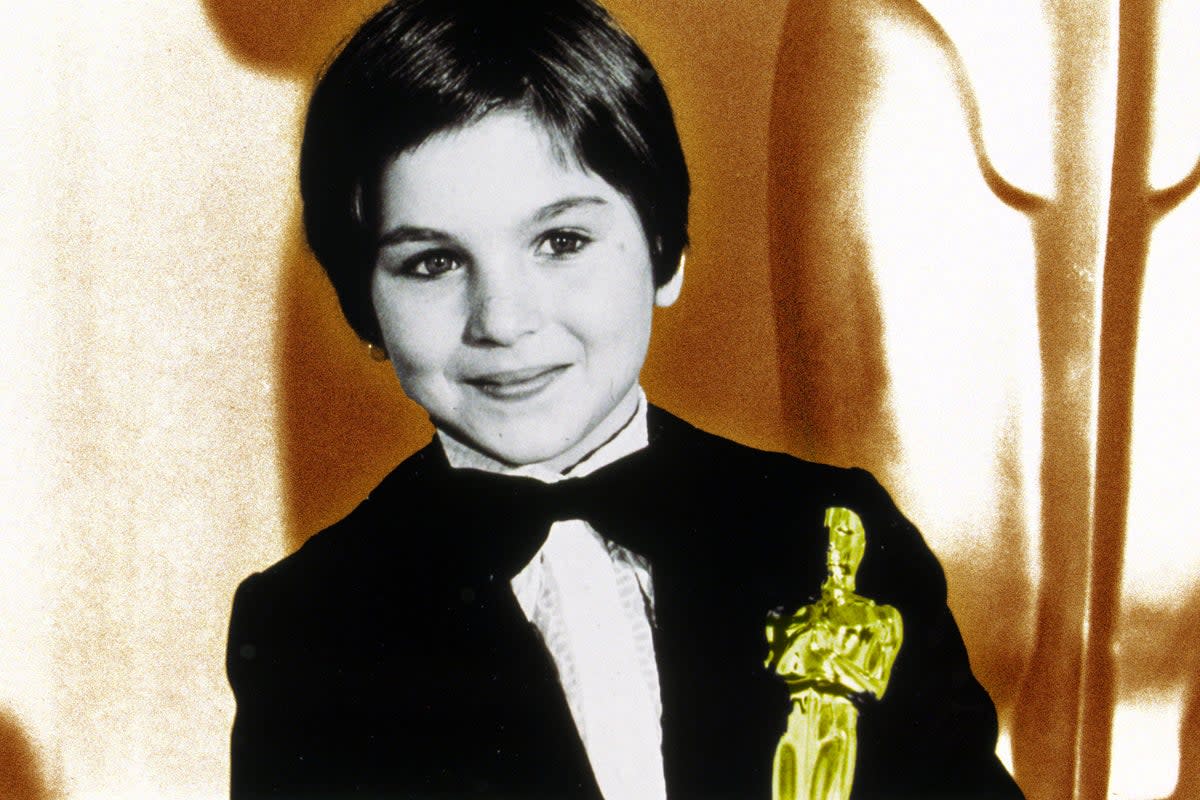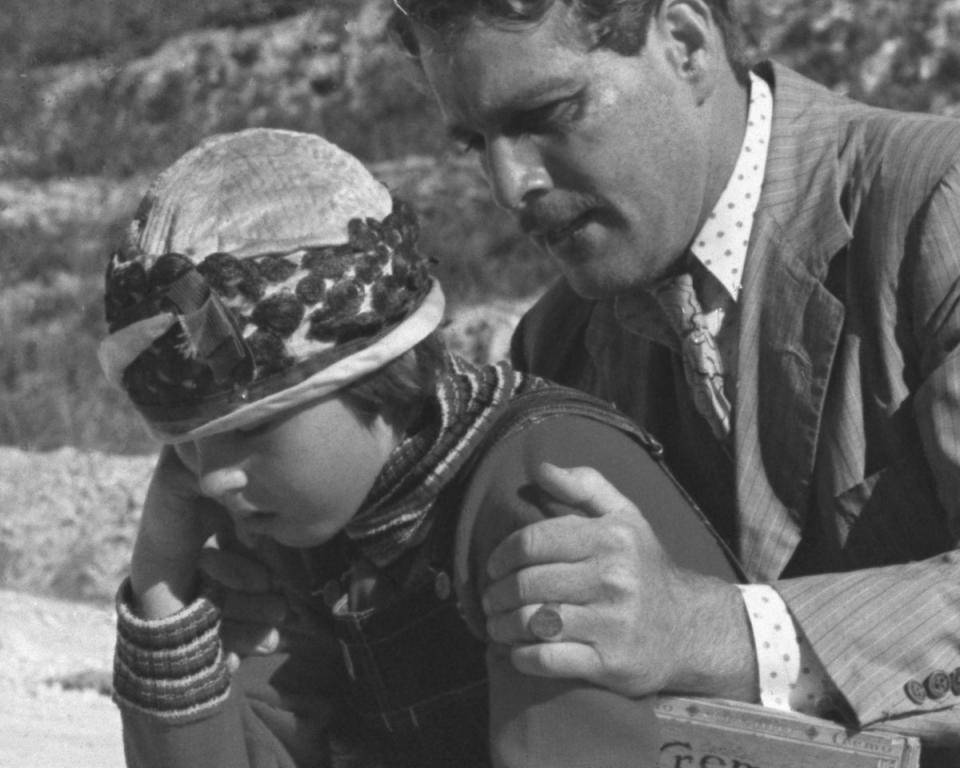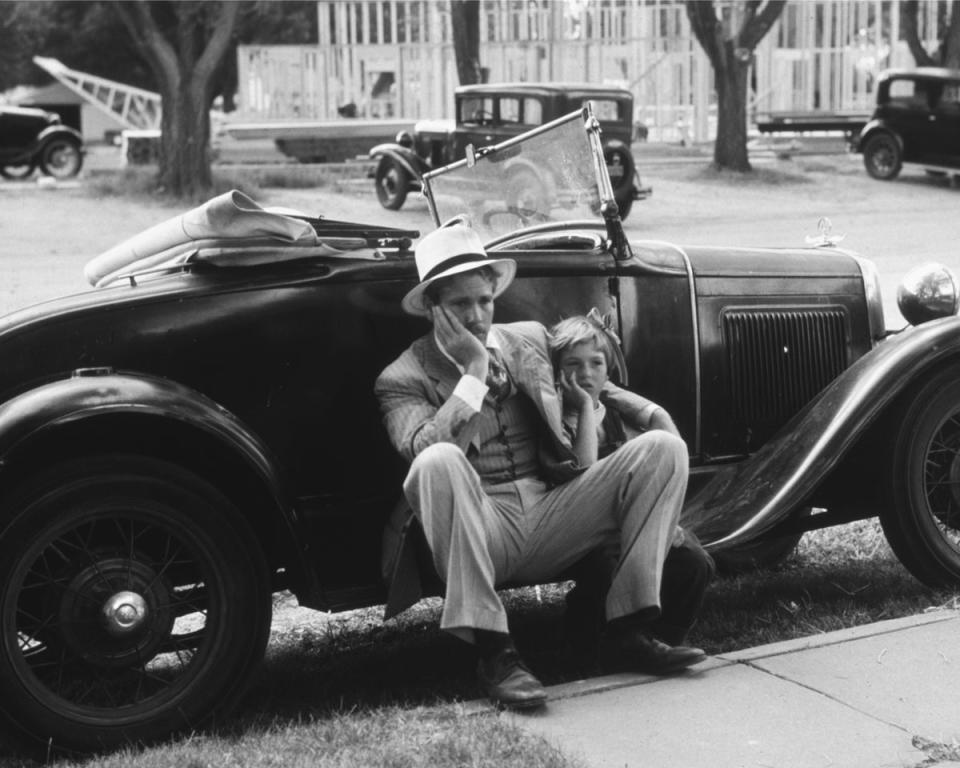‘He socked me’: Tatum O’Neal and the horrible backstory behind the youngest ever Oscar win

For many actors, an Academy Award is the final frontier. They are often treated as things to be earned through years of glad-handing and hard graft – a prize to be yearned after for years, even decades. But not everybody has to wait a lifetime. Just ask Tatum O’Neal.
It was 50 years ago, in 1974, that O’Neal became the youngest ever Oscar winner, for her performance opposite her father Ryan in Peter Bogdanovich’s scammers-on-the-road movie Paper Moon. O’Neal was just eight when she shot the film, and 10 when she won the award. Despite some claims of so-called category fraud – many have argued that O’Neal ought to have competed in the Lead Actress strand – this was a win that has stood the test of time. The black-and-white Depression-era drama remains one of the most esteemed American films of the 1970s, and is still, to this day, inimitably charming. Paper Moon soared thanks to O’Neal: the young actor delivers the quintessential “Hollywood child actor” performance, full of pluck and pathos. Her chemistry with her father, too, was lived-in and heartfelt. Offscreen, however, it was a different story.
The daughter of Ryan and the actor Joanna Moore, O’Neal endured a childhood full of parental neglect and outright abuse. “You’d think an Oscar nomination would be an indelible moment, a victory to cherish and savour for a lifetime,” she wrote in her 2004 memoir A Paper Life. “But for me it must have been a trauma instead of a triumph.” O’Neal described her father’s “deep resentment” over the acclaim she received, supposedly at his expense. By the time awards season swung around, his jealousy was “out of control”, she claimed.
There were exacerbating factors. Ryan, the late star of Love Story and Bogdanovich’s screwball comedy What’s Up Doc?, was in the throes of a drug problem. “Once so loving and funny, he had grown crazily moody,” O’Neal later recalled. He would allegedly tell her: “I just don’t like you, Tatum.”
O’Neal says she has no memory of the nominations announcement, though was told by someone else present that her father had “socked” her upon finding out that she was nominated and he was not. (Paper Moon did receive three other nominations, including one for Madeline Kahn, who went up against O’Neal in the Supporting Actress category.) Explaining her inability to remember the incident, O’Neal heartbreakingly wrote: “For a child already obsessed with losing her father, who was living in terror, believing that his love was ebbing away, that would have been way too painful to process. If I’ve blocked it out, it’s no wonder.”
At the time of the nominations, O’Neal and her father were staying in England, while he was filming his lead role in Stanley Kubrick’s period masterpiece Barry Lyndon. Amid the announcement, Ryan vented his frustrations to the media, telling British reporters that his daughter was “lazy by nature” and had “taken over the picture”. When she went back to the US for Oscar night, he did not accompany her.

“Returning to the States for the ceremony – alone, shaky and sad – I felt like Little Orphan Annie,” O’Neal later wrote, remembering the night itself with some misgivings (“I must have looked very vulnerable and small”). To onlookers, however, the scene was a fairytale. At the Dorothy Chandler Pavilion on Oscar night, O’Neal was adorable and innocent-seeming, suited in a custom tuxedo (in imitation of Bianca Jagger, the model and wife of Mick Jagger with whom her father was having an affair at the time).
She was up against another child actor for the award, The Exorcist’s 15-year-old Linda Blair, as well as her co-star Kahn, American Grafitti’s Candy Clark and Sylvia Sidney of Summer Wishes, Winter Dreams. When O’Neal went up to accept the trophy, she hadn’t prepared a speech; she ended up saying just one phrase: “All I really want to thank is my director, Peter Bogdanovich, and my father. Thank you.” Her grandfather then came on stage, quickly thanked people on her behalf again, and escorted her off.
The feeling I associate most with winning the Oscar is an overwhelming sadness at being abandoned by my parents
Tatum O’Neal
If you watch O’Neal’s speech back, you may pick up on a sort of faux-British diction to it – a result of her spending so much time with Kubrick, and his daughter, Vivian Kubrick, back in England. “I was actually living with the Kubricks at the time. I just loved the way Vivian spoke my name – ‘Tay-tum.’ I wanted to pick up the accent,” the actor revealed to The Hollywood Reporter a decade ago.
After the ceremony, she received an uncharacteristically affirming phone call from her father, who went on to display the statuette on his mantle. “It was as if he suddenly saw there was cache in having an Academy Award-winning daughter,” O’Neal said, adding that he would routinely seek to take credit for the victory.
Her reflections on the Oscar win are profoundly sad, including the claim that the achievement failed to provoke any “fanfare from anyone who mattered to me… The feeling I associate most with winning the Oscar is an overwhelming sadness at being abandoned by my parents – both of them, for my mother remained silent – one more time,” she wrote.
The years that followed the Oscar win were bleak and chaotic, marked by more parental abuse and neglect. (This is all per O’Neal’s account of things; Ryan described the many allegations of abuse in his daughter’s book as “malicious lies”.) O’Neal faced unconscionable hardships both before and after her success. She was sexually abused by other adults as a child, and attempted to take her own life three times. She and her brother Griffin developed serious addiction issues of their own. To date, her career has never again reached the heights of Paper Moon.

One notorious low point saw Ryan make a pass at his daughter while at the funeral of his longtime partner, Charlie’s Angels actor Farah Fawcett. O’Neal had been estranged from her father at the time, and he said he didn’t recognise her. Subsequently, though, the pair were able to repair their relationship. In 2020, O’Neal overdosed and suffered a major stroke, nearly dying. Ryan died in December 2023 of congestive heart failure.
It’s entirely possible that O’Neal’s record will stand unbroken for another 50 years. There have been younger nominees before and after – Skippy’s nine-year-old Jackie Cooper in 1931; Justin Henry, eight, in 1978’s Kramer vs Kramer; nine-year-old Quevenzhane Wallis in Beasts of the Southern Wild – but no winners. (Only two other children, in fact, have ever won: Anna Paquin, 11, for The Piano, and Patty Duke, 16, for The Miracle Worker.) It’s easy to forget, amid the tragedy, injustice, and brutal horror of her life, the sheer magic that O’Neal was able to cast on screen. Despite everything, Paper Moon does endure as a celebration of a child’s prodigious talent. But nothing could possibly have been worth the cost.


